KATHMANDU: A debate erupted in Nepal on the social network X (Twitter) over Chinese Ambassador to Nepal Chen Song’s conduct.
The Ministry of Foreign Affairs has been requested to seek an explanation from the Chinese Ambassador to Nepal, Chen Song, for his remarks on the social network, urging him to apologize.
News about this has also been published in Kathmandu-centered online media, with some even suggesting that he should be sent back for exceeding diplomatic decorum.
The controversy began with three responses made by Ambassador Song to a social media post by Gajendra Budhathoki, a journalist in Nepal.
Budhathoki is well-versed on Nepal’s economy. His bylined news is trusted, with facts and figures confirmed and published in established newspapers in Nepal.
He is a senior journalist of repute in the country.
Budhathoki wrote, “The loan taken for the Pokhara International Airport was said to have an interest rate of 2 percent, but it was 5 percent.”
On Monday, this post appeared on journalist Gajendra’s X account.
In his reply to this post, Ambassador Chen Song, wrote, “The worst lie I have ever seen. This is public information, but you dare to lie about it.”
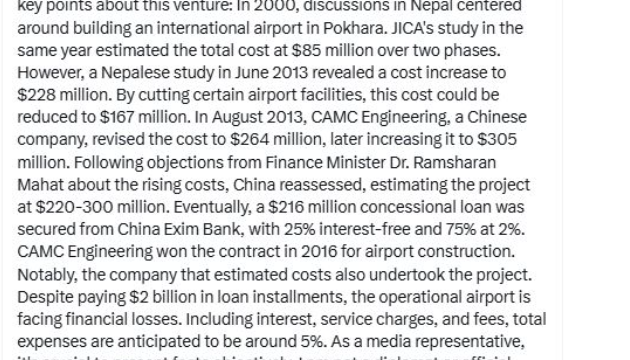
In response, journalist Gajendra replied, “Wait, I will publish it with evidence.”
Ambassador Song did not stop there. He further challenged on social media, “If you have the document, publish it. If not and it takes time to find, what is your intention? First spread fake news, then stop for some time, its heat will be reduced. And spread it again.”
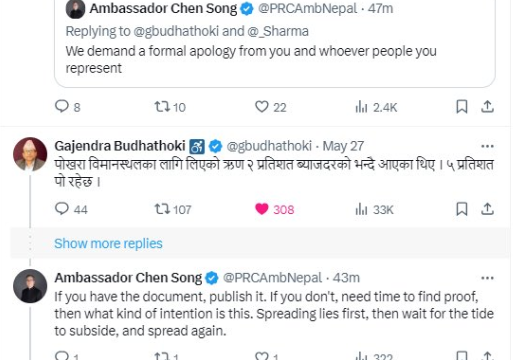
He demanded an apology from journalist Budhathoki and anyone else involved.
However, Ambassador Song overlooked that this is Nepal, not China, where freedom of speech is upheld.
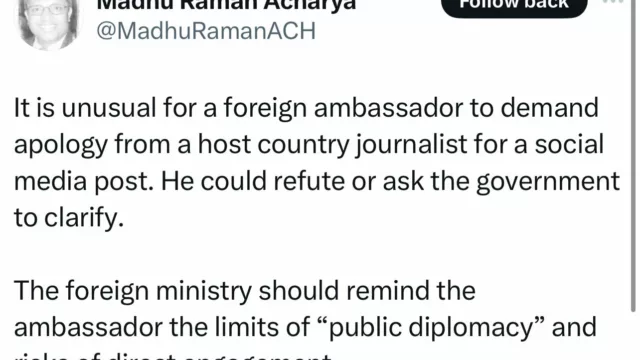
Can an established journalist not write about a topic mentioned in the government’s official document?
Following this, Madhuraman Acharya, an expert in diplomatic affairs, wrote that it is unusual for a foreign ambassador to demand an apology from a journalist of the host country for a social media post.
He suggested that the ambassador can refute the claim or ask the government to clarify.
The Ministry of Foreign Affairs should remind the ambassador of the limits of ‘public diplomacy’ and the risks of direct engagement.
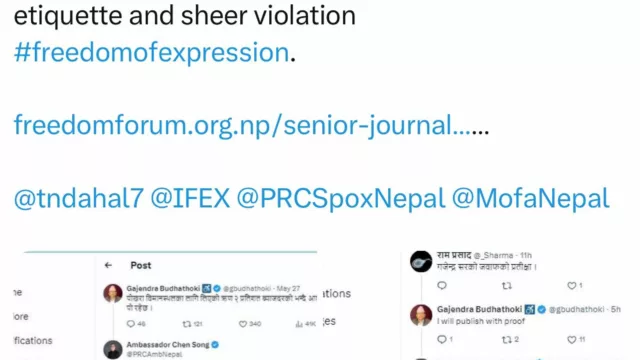


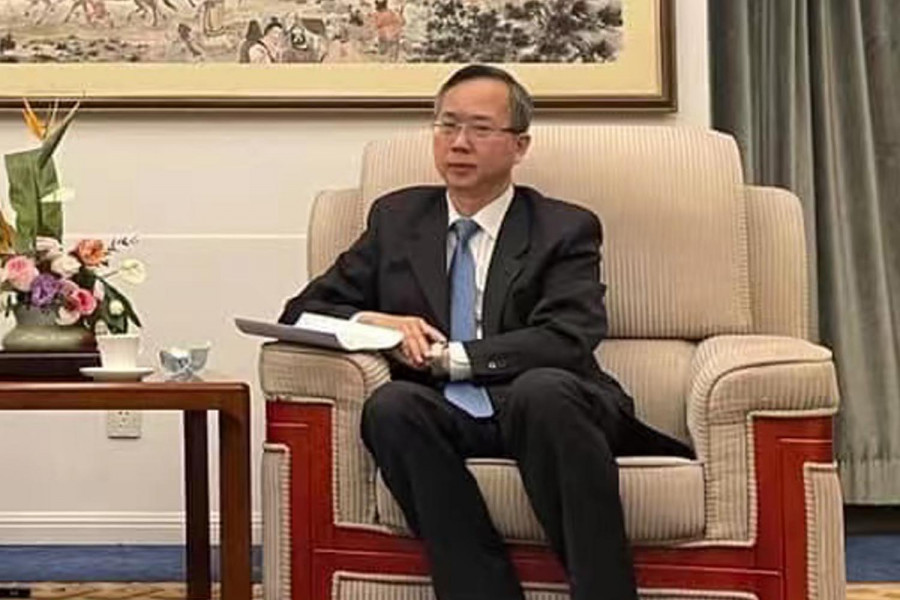






Comment